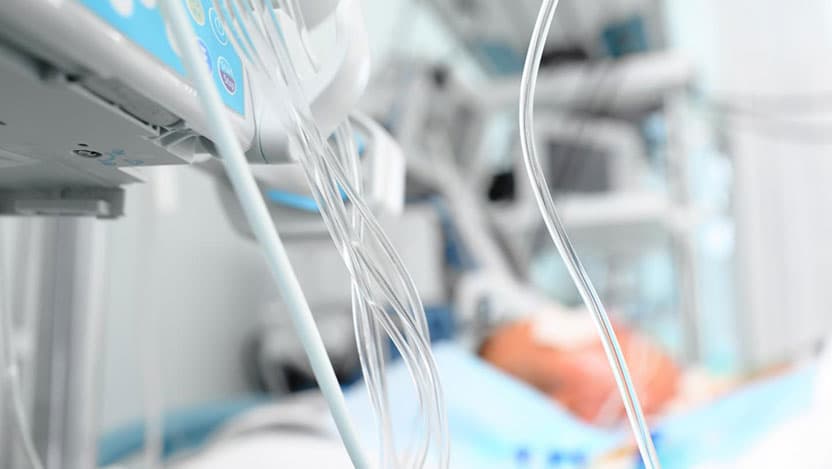Opioid overdoses over tax ICUs in U.S. hospitals

A new study by researchers from the Beth Israel Deaconess Medical Center (Boston) and the University of Chicago Medicine found that opioid-associated overdose admissions that required admission to a hospital intensive care unit increased by 34 percent from January 1, 2009 to September 31, 2015.
Mortality in the ICU nearly doubled during this time, with most of the increase coming after April 2012. The average cost per case increased by 58 percent, from $58,517 in 2009 to $92,408 in 2015.
The finding, the authors suggest, indicates that "opioid-related demand for acute care services has outstripped the available supply."
"The opioid epidemic has reached a new level of crisis," said the study's lead author Jennifer P. Stevens, MD, associate director of the medical intensive care unit at Beth Israel Deaconess Medical Center and assistant professor at Harvard Medical School. "This study tells us that the opioid epidemic has made people sicker and killed more people, in spite of all the care we can provide in the ICU, including mechanical ventilation, acute dialysis, life support and round-the-clock care."
In "The Critical Care Crisis of Opioid Overdoses in the United States," published online, ahead of print in the Annals of the American Thoracic Society, the researchers focused on acute care hospital admissions of patients 18 years or older. They collected data from 162 hospitals in 44 states. Most of the hospitals were in urban areas.
During this period, from the beginning of 2009 to mid-2015, more than 4.1 million patients were admitted to an intensive care unit; 21,705 wound up there because of an opioid overdose.
Many of the 162 hospitals were in areas with "high rates of prescriptions for opioid pain killers," the authors note, but they also describe an "increasing association over time of heroin with the most severe opioid overdoses."
"The opioid epidemic continues to be shown as a relentlessly growing, but preventable, cause of death," said study co-author Michael Wall, PharmD, MBA, Executive Director of Analytics, Improvement, and Insight at the University of Chicago Medicine.
"We would propose that any admission to the ICU for opioid overdose is a preventable admission," the study authors wrote.
This research comes at a time of considerable interest. On Tuesday, August 8, Health and Human Services Secretary Tom Price said the administration felt like it had enough resources and focus without needing to declare an emergency. Price added, however, that the option was still on the table.
On Thursday, however, the day before the opioid overdose and ICU care study was published, President Donald Trump told a group of reporters that his administration would declare the opioid crisis a national emergency. "We are going to draw it up and we're going to make it a national emergency,"
Trump said. "It's a serious problem, the likes of which we have never had. But this is a national emergency and we are drawing documents now to so attest."
More than 140 Americans die from a drug overdose every day, according to the American Hospital Association. That's more than from gun homicides and car crashes combined.
There is no indication that the opioid abuse rates have declined since 2015.
Additional authors include: John Marshall, PharmD, of the Center for Healthcare Delivery Science at BIDMC; Douglas J. Hsu, MD, of BIDMC's Department of Medicine; Lena Novack, PhD, of Ben-Gurion University of the Negev; and senior author Michael D. Howell, MD, MPH of the University of Chicago Medicine. The authors declare no sources of funding and no competing interest.

